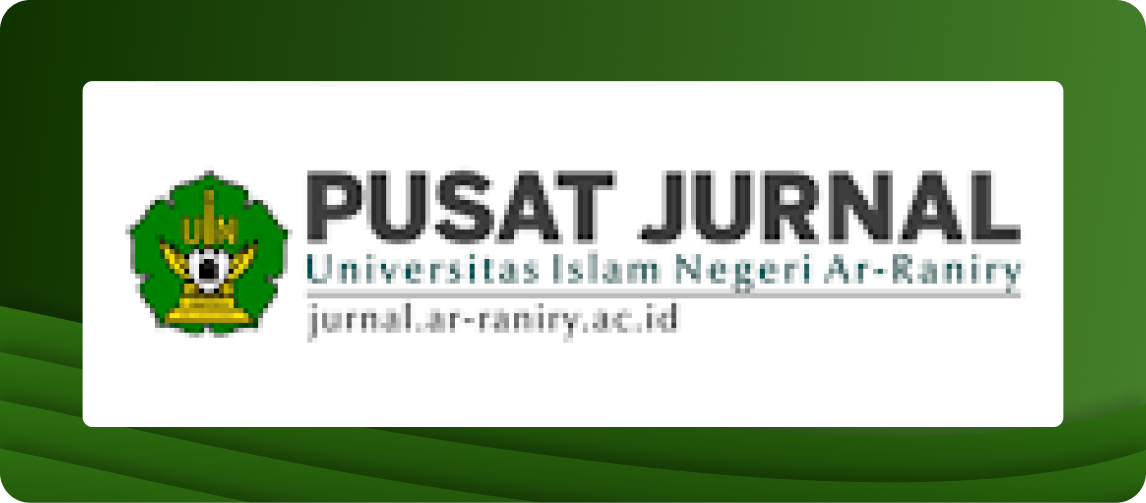Inheritance Rights of Nasabiyyah Children Born Out of Wedlock According to Islamic Family Law
DOI:
https://doi.org/10.22373/ujhk.v7i2.25072Keywords:
Nasab, inheritance, qiyafah techniques, Islamic family lawAbstract
The inheritance rights of nasabiyyah children outside of marriage, religion or the state will not get inheritance because the status of the child follows his mother, not his father. The serious problem is how to maintain the rights that should be obtained by children born out of wedlock, and whether the development of science and technology is ignored, even though in the rules of a change in a law is dependent on the time, place, and context of the problem. This study uses a comprehensive juridical law method that is comparatively analyzed to present data and facts from the perspective of positive law and Islamic law as well as the role of technology and science. The data is sourced from articles, books, legal rules and other juridical sources. This study concludes that in positive law, especially civil law of inheritance, the status of the child's inheritance rights outside of marriage can be recognized as long as the biological father recognizes the child's destiny as his destiny. As for Islamic civil law, there is no legal leniency for children outside of marriage, if the child is born without a clear status from both parents, then the child follows his mother and not his father. Islam has flexible laws that can adapt to the existing context. From the point of view of Islamic law, there are several ways to determine nasab, one of which is the qiyafah technique. The technique can be qiyas-kan with the reading of the nasab through a DNA test because it has almost the same legal 'illat. With the advancement of technology and the development of science, the method of determining the nasab can also be developed.
References
Abubakar, Ali, et.al., “The Right of a Child Outside the Legal Marriage of a Biological Father: The Analysis of Ḥifẓ Al-Nafs as Law `Illat,” Samarah: Jurnal Hukum Keluarga dan Hukum Islam 5, no. 1 (2021). DOI: http://dx.doi.org/10.22373/sjhk.v5i1.9256.
Al-Jauziyah, Ibnu Qayyim. Al-Turuq Al-Hukmîyah Fi Al-Siyasah Al-Shari’ah. Kairo: Dar al-Hadits, 2000.
Al-Maqdisi, Abdullah bin Qodamah Muhammad. “Al-Kafifi Fiqh Ibn Hanbal.” Maktabah al-Syamilah, 2020.
Al-Qurthubi, Abu Abdillah Muhammad bin Ahmad bin Abu Bakar al-Anshari. Tafsir Al Qurthubi Jilid 19. Jakarta: Pustaka Azzam, 2020.
Al-Suyuti, Imam Jalaludin Abdurrahman. Al Asybah Wa An Nadhair Fi Qawa’id Wa Furu’ Fiqh Al-Syafi’iyyah. Beirut: Al-Thaba’at al-Aula, 1983.
Al-Zuhaily, Wahbah. Fiqh Al-Islam Wa Adillatuhu Jilid 9. Jakarta: Gema Insani, 2010.
Ali, Bukhari, Nur Wulandari, and Nahara Erianti. “Status of Children Born Out of Wedlock: A Study of Constitutional Court Decision and Its Relevance to the View of Ibnu Taimiyah.” El-Usrah: Jurnal Hukum Keluarga 7, no. 1 (2024). https://doi.org/10.22373/ujhk.v7i1.24200.
Ali Ghafir, Moh. “Anak Zina Dalam Pandangan Islam.” Syaikhuna: Jurnal Pendidikan Dan Pranata Islam 9, no. 1 (2018). https://doi.org/10.36835/syaikhuna.v9i1.3194.
Arfa, Faisar Ananda and Watni Marpaung, Metodologi Penelitian Hukum Islam, Jakarta: Kencana, 2016.
Arnold, Achmad, and Mulyono Jamal. “Hak-Hak Keperdataan Anak Hasil Zina Dan Anak Luar Nikah Perspektif Hukum Positif Dan Hukum Islam.” Journal of Indonesian Comparative of Law 2, no. 1 (2019). https://doi.org/10.21111/jicl.v2i1.4484.
Arto, A. Mukti. “Hukuman Ta’zir Mewajibkan Ayah Biologis Memberi Bagian Dari Harta Waris Untuk Anak Luar Nikah Dan Penyelesaiannya Di Pengadilan Agama.” Mahkamah Agung, 2013. https://badilag.mahkamahagung.go.id/artikel/publikasi/artikel/tazir-ayah-biologis-a-wasiat-wajibah-oleh-a-mukti-arto-192.
Aslati, Armi Agustar, et.al., “Utilizing Science and Maqāṣid Al-Sharī’ah in Resolving Contemporary Issues of Islamic Family Law.” Al-Manahij: Jurnal Kajian Hukum Islam 18, no. 1 (2024). https://doi.org/10.24090/mnh.v18i1.10571.
Ath-Thabari, Imam Abu Ja’far Muhammad bin Jarir. Tafsir At-Thabari Jami’ Al Bayan Fi Ta’wil Al Qur’an Terjemah Bahasa Indonesia Jilid 25. Jakarta: Pustaka Azzam, 2022.
Azwar, Zainal, et.al., “Child Filiation and Its Implications on Maintenance and Inheritance Rights: A Comparative Study of Regulations and Judicial Practices in Indonesia, Malaysia, and Turkey.” Journal of Islamic Law 5, no. 1 (2024). https://doi.org/10.24260/jil.v5i1.2326.
Bengal, Rahmat Vijay, et.al., “Tinjauan Yuridis Kompilasi Hukum Islam Tentang Hak Warisan Anak Hasil Hubungan Di Luar Nikah Antara Tenaga Kerja Wanita Dengan Majikannya.” Bhirawa Law Journal 2, no. 1 (2021). https://doi.org/10.26905/blj.v2i1.5851.
Carney, Michael, et.al., “Dead Money: Inheritance Law and the Longevity of Family Firms.” Entrepreneurship Theory and Practice 36, no. 6 (2014): 1261–83. https://doi.org/10.1111/etap.12123.
Chaq, Moh. Dliya’ul. “Nasab Anak Dalam Hukum Islam; Membaca Peluang Sains Dan Teknologi Dalam Penetapan Nasab.” Tafáqquh: Jurnal Penelitian Dan Kajian Keislaman 6, no. 1 (2018). https://doi.org/10.52431/tafaqquh.v6i1.130.
Coulson, N. J. “Inheritance in Shīʻī Law.” In Succession in the Muslim Family, edited by N J Coulson, 108–34. Cambridge: Cambridge University Press, 1971. https://doi.org/DOI: 10.1017/CBO9780511557965.009.
Daud, Fathonah K. “Dinamika Hukum Keluarga Islam Dan Isu Gender Di Iran: Antara Pemikiran Elit Sekuler Dan Ulama Islam.” Volksgeist: Jurnal Ilmu Hukum Dan Konstitusi 4, no. 2 (2021). https://doi.org/10.24090/volksgeist.v4i2.5738.
Dirjen Bimas Islam. Kompilasi Hukum Islam Di Indonesia. Jakarta: Kementerian Agama RI, 2018.
Djawas, Mursyid, et.al., “The Construction of Islamic Inheritance Law: A Comparative Study of the Islamic Jurisprudence and the Compilation of Islamic Law.” Juris: Jurnal Ilmiah Syariah 21, no. 2 (2022). https://doi.org/10.31958/juris.v21i2.7495.
Elfia, Sandria Milka Ratna Sari, et.al., “Patterns for Settlement of Punah Inheritance Disputes In the Community of Nagari Salareh Aia from the Perspective of Islamic Law.” Al-Ihkam: Jurnal Hukum Dan Pranata Sosial 17, no. 2 (2022). https://doi.org/10.19105/al-Ihkam.v17i2.6246.
Fageh, Ahmad. “Analisa Hak Waris Anak Luar Kawin Pendekatan Hak Asasi Manusia.” Akademika 11, no. 2 (2017). https://journalfai.unisla.ac.id/index.php/akademika/article/view/165.
Fitriyadi, Tri Hidayati, et.al., “Redefining Legal Frameworks: Progressive Methods in Ascertaining Children’S Lineage From Fasid Marriages in Religious Court.” Syariah: Jurnal Hukum Dan Pemikiran 24, no. 1 (2024). https://doi.org/10.18592/sjhp.v24i1.12894.
Gani, Ruslan Abdul. “Status Anak Luar Nikah Dalam Hukum Waris (Studi Komperatif Antara Kitab Undang-Undang Hukum Perdata Dengan Kompilasi Hukum Islam).” Al-Risalah: Forum Kajian Hukum Dan Sosial Kemasyarakatan 11, no. 01 (2018). https://doi.org/10.30631/al-risalah.v11i01.477.
Hanapi, Agustin, et.al., “Kedudukan Metode Al-Qāfah Dalam Penetapan Nasab Anak Menurut Ulama Perspektif Maqashid Al-Syariah.” De Jure: Jurnal Hukum Dan Syar’iah 14, no. 1 (2022). https://doi.org/10.18860/j-fsh.v14i1.15875.
Hijawati, Hijawati, and Rizayusmanda Rizayusmanda. “Hak Dan Kedudukan Anak Luar Nikah Yang Diakui Terhadap Warisan Tanah Ditinjau Dari Hukum Perdata.” Solusi 19, no. 1 (2021). https://doi.org/10.36546/solusi.v19i1.333.
Ihwan, Muhammad. “Hak-Hak Anak Zina Perspektif Fiqh Empat Madzhab.” Istidlal: Jurnal Ekonomi Dan Hukum Islam 1, no. April (2017). https://doi.org/10.35316/istidlal.v1i1.100.
Jalaluddin, Akhmad. “Nasab: Antara Hubungan Darah Dan Hukum Serta Implikasinya Terhadap Kewarisan.” Jurnal Ishraqi 10, no. 1 (2012).
Jamil, M. “Nasab Dalam Perspektif Tafsir Ahkam.” AHKAM : Jurnal Ilmu Syariah 16, no. 1 (2016). https://doi.org/10.15408/ajis.v16i1.2902.
Jarir, Abdullah, et.al., “Legal Reasoning on Paternity: Discursive Debate on Children Out of Wedlock in Indonesia.” Ahkam: Jurnal Ilmu Syariah 23, no. 2 (2023). https://journal.uinjkt.ac.id/index.php/ahkam/article/view/27005.
Kopels, Sandra. “Book Review: Inheritance Law and the Evolving Family.” Affilia 20, no. 2 (2005). https://doi.org/10.1177/0886109905274619.
Maizuddin, Maizuddin, et.al., “The Typology of Hadith as the Bayan of the Qur’an and Its Implications for the Reform of Islamic Inheritance Law.” Samarah 7, no. 2 (2023). https://doi.org/10.22373/sjhk.v7i2.17467.
Manzur, Imam Allamah. Lisan Al-Arabiy. Kairo: Dar al-Hadits, 2006.
Mujuzi, Jamil Ddamulira. “The Conundrum of Intestate Succession for Muslims in Uganda: Qadhis Court, Women’s Rights, and Islamic Inheritance Law Issues.” Al-Ahwal 16, no. 1 (2023). https://doi.org/10.14421/ahwal.2023.16103.
Nawawi, M. Anwar, et.al., “Harmonization of Islam and Human Rights: Judges’ Legal Arguments in Rejecting Child Marriage Dispensation in Sukadana, Indonesia.” Ijtihad: Jurnal Wacana Hukum Islam Dan Kemanusiaan 22, no. 1 (2022). https://doi.org/10.18326/ijtihad.v22i1.117-133.
Nurhayat, Bernadeta Resti. “Status Anak Luar Kawin Dalam Hukum Adat Indonesia.” Jurnal Komunikasi Hukum 3, no. 2 (2017). https://ejournal.undiksha.ac.id/index.php/jkh/article/view/11827/7549.
Purnamawati, Shinta Ayu, et. al., “Child-Friendly Justice and Children’s Rights from Criminal Cases; Islamic Law Notes.” Legality: Jurnal Ilmiah Hukum 32, no. 1 (2024). https://doi.org/10.22219/ljih.v32i1.31681.
Pusvita, Sari. “Keperdataan Anak Diluar Nikah Dalam Putusan Mahkamah Konstitusi Dan Implikasinya Terhadap Harta Warisan.” Ulul Albab: Jurnal Studi Dan Penelitian Hukum Islam 1, no. 2 (2018). https://doi.org/10.30659/jua.v1i2.2338.
Qudamah, Abdullah Bin Ahmad Bin. “Sharah Al-Kabir Ibn Qudâmah.” Maktabah al-Syamilah, 2020.
Qurtubi, Abu Muhammad Ali Bin Ahmad Bin Sa’id Bin Hazm Andalusian. Al-Muhalla Fi Sharh Al-Mujalla Bi Al-Hujaj Wa Al-Athar. Beirut: Al-Afkar Ad-Dauliyyah, 2003.
Rosadi, Aden, and Siti Ropiah. “Reconstruction of Different Religion Inheritance Through Wajibah Testament.” Jurnal Ilmiah Peuradeun 8, no. 2 (2020). https://doi.org/10.26811/peuradeun.v8i2.466.
Sakirman. “Telaah Hukum Islam Indonesia Terhadap Nasab Anak.” Hunafa: Jurnal Studia Islamika 12, no. No. 2 (2015). http://jurnalhunafa.org/index.php/hunafa/article/view/398.
Sevilla, Margareta, et.al., “Kedudukan Anak Luar Kawin Dalam Hukum Waris.” Jurnal Hukum Magnum Opus 4, no. 2 (2021). https://doi.org/10.30996/jhmo.v4i2.5242.
Supriyadi, Imam. “Komparasi Anak Zina Dan Anak Angkat Menurut BW Dan Hukum Islam.” The Indonesian Journal of Islamic Law and Civil Law 1, no. 1 (2021). https://doi.org/10.51675/jaksya.v1i1.139.
Susanto, Muhammad Hajir, Yonika Puspitasari, and Muhammad Habibi Miftakhul Marwa. “Kedudukan Hak Keperdataan Anak Luar Kawin Perspektif Hukum Islam.” Justisi 7, no. 2 (2021). https://doi.org/10.33506/js.v7i2.1349.
Syaikhu, et.al., “The Maqashid Sharia Construction on Inheritance in Dayak Ngaju Customs Within the Tumbang Anoi Agreement.” El-Mashlahah 13, no. 2 (2023). https://doi.org/10.23971/el-mashlahah.v13i2.7375.
Zaidah, Yusna, et.al., “Unveiling The Role of Local Cultural Consideration In Judicial Discretion: An Analysis of Inheritance Decisions In The Religious Courts of South Kalimantan.” Al-Risalah: Forum Kajian Hukum Dan Sosial Kemasyarakatan 23, no. 1 (2023).
Downloads
Published
Issue
Section
License
Authors who publish in El-Usrah: Jurnal Hukum Keluarga agree to the following terms:
Authors retain copyright and grant the journal right of first publication with the work simultaneously licensed Attribution-ShareAlike 4.0 International (CC BY-SA 4.0) that allows others to share the work with an acknowledgment of the work's authorship and initial publication in this journal.
Authors are able to enter into separate, additional contractual arrangements for the non-exclusive distribution of the journal's published version of the work (e.g., post it to an institutional repository or publish it in a book), with an acknowledgment of its initial publication in this journal.
Authors are permitted and encouraged to post their work online (e.g., in institutional repositories or on their website) prior to and during the submission process, as it can lead to productive exchanges, as well as earlier and greater citation of published work. (See The Effect of Open Acces)

















